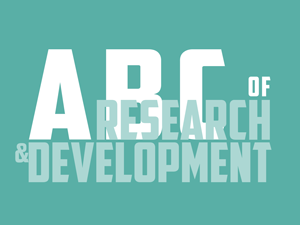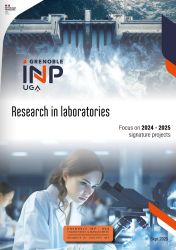Personnel concerned by ancillary activities
All civil servants and contractual agents under public or private law in the three branches of the civil service (i.e. State, local authority and hospital) may carry out ancillary activities, regardless of whether the agent is working full or part-time. Indeed, since 2017, the restriction on part-time employees not to carry out any additional activities has been removed.
Points of vigilance for research staff
On the one hand, if your collaboration with the company requires the use of the laboratory's resources, then you should opt for a research collaboration or a service provision between the laboratory and the company.
On the other hand, if your involvement falls within the scope of the law on innovation, i.e. if it concerns public research work that is developed by the company, then your application must be based on Article L. 531-8 to 9 of the Research Code as a scientific competition.
In the other cases, you can carry out the expertise on a personal basis and be remunerated for it as an additional activity.
Conditions for holding concurrent employment for secondary activities
You can combine remuneration for ancillary activities such as an expertise, a consultation, etc. with a private person (and also a public person). You will find an exhaustive list of the nature of the possible ancillary activities in Article 11 of Decree No. 2020-69 of 30 January 2020 on ethical controls in the public service. Eleven ancillary activities are listed (including expertise, consulting, training and teaching, sale of goods manufactured by the agent, etc.). There is no definition of the notion of ancillary activities, but it is opposed to the notion of "employment", so the volume of these ancillary activities must be limited. Therefore, the activities that may be authorised remain of minor importance in relation to the main activity.
Circular no. 2157 of 11 March 2008 on concurrent activities states that «
the ancillary nature of the activity must be assessed on a case-by-case basis, taking into account three elements: a) the activity envisaged: to characterise the activity, the "bundle of evidence" technique can usefully be applied on the basis of the information that must be provided by the agent in his or her written application for authorisation. This information concerns at least the identity of the employer, the nature, duration, frequency and conditions of remuneration of the activity. It will serve as a criterion for the employer to determine whether the activity appears to be ancillary to the staff member's main professional activity; b) the conditions of employment of the staff member: this assessment is to be made in the light of the staff member's employment arrangements: c) the particular constraints and hardships of the service in which the agent is employed, in particular with regard to the impact of this activity on the service and the way in which the agent serves. »
It should be noted that the fact that the remuneration resulting from the ancillary activities carried out by an employee is significant, or even higher than that of the main job, could no longer constitute grounds for refusing authorisation. Only the hourly volume is taken into account to determine whether the activity is accessory. Since 2017, the ceiling on remuneration for ancillary activities has been abolished.
Ancillary activities are carried out outside working hours. They do not have to be related to the competence of the employee in his or her main activity.
If, due to its volume or the way it is carried out, the request to combine activities for an accessory activity constitutes a main activity, then the agent, in order to carry out this commercial activity, will have to base his or her request on the combination of activities for the creation of a company (title II - chapter IV - article 16 of decree no. 2020-69 of 30 January 2020 relating to ethical controls in the public service).
The activity must be compatible with the functions performed, without affecting the functioning, independence and neutrality of the public service. It must not place the agent in a situation of illegal interest.
Legal framework for the exercise of secondary activities
In order to understand the legal framework, it is necessary to recall that it is forbidden for civil servants to combine a permanent full-time job with one or more other permanent full-time jobs (Article 25 septies of Law 83-634 of 13 July 1983, known as the "Le Pors" law). The accumulation of permanent jobs is not permitted. Thus, any contract concluded under public or private law would fall within the scope of permanent employment. The ancillary activity does not allow the cumulation of two permanent jobs and the ancillary nature of the activity is therefore opposed to any mechanism for the perpetuation of the agent's commitment. This has been confirmed by case law. An ancillary activity therefore corresponds to an activity carried out outside the agent's main job which is performed under working conditions and employment that make it possible to clearly identify that it does not meet a permanent need of users and the administration, i.e. that it does not create a dependency link for the agent, for example an activity that can be renewed as a permanent contract under public or private law.
The combination of ancillary activities can be carried out in different legal forms, in particular under the micro-business regime (e.g. a self-employed company), but it can take other forms and does not exclude any of them a priori: employment contract, vacation, self-employed worker. Note that in the case of ancillary activities such as personal services mentioned in Article L7231-1 of the Labour Code and the sale of goods produced personally by the agent, these must be carried out under the micro-enterprise regime.
In addition to the micro-enterprise regime, the creation of an individual limited liability company (EIRL) is possible:
« But in application of the provisions of Article L. 526-6 of the Commercial Code, the creation of an individual limited liability company (EIRL) does not result in the creation of a company with legal personality. The exercise of an activity, cumulatively, in the form of an EIRL does not therefore prevent it from being considered as accessory [...] ».
But beware if the agent wishes to carry out an ancillary activity in another form of company, then he/she will have to apply for cumulative employment not on the basis of the ancillary activity but on the basis of cumulative employment for the creation of a business mentioned above. Thus, the case law of the ethics commission mentions:
« Certain activities, which would be of an accessory nature if they were carried out by the agent in the form of a sole proprietorship, are analysed by the commission as falling under the regime of cumulation for the creation of a company, which is less favourable since it is limited in time, when the agent has planned to carry out his project by constituting a company, which is not transparent, for example a limited liability company (SARL) or a single person limited liability company (EURL). The commission shall inform the agent of the possibility of carrying out his activity under another status. »
Article written by Isabelle Chéry and Gaelle Calvary.
Translated with www.DeepL.com/Translator (free version)




